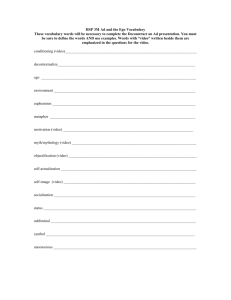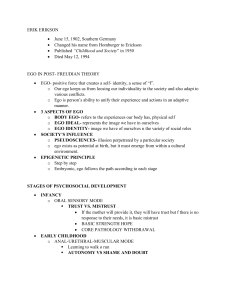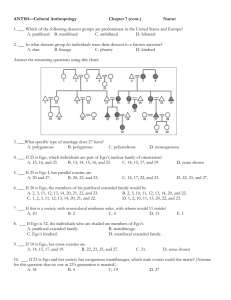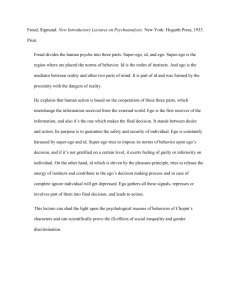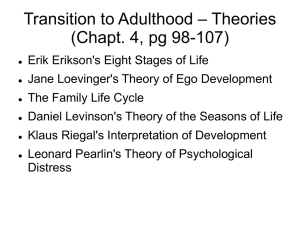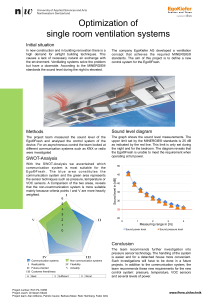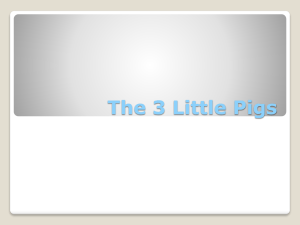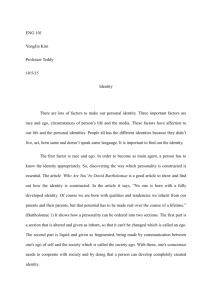07-Interpersonal Therapy
advertisement
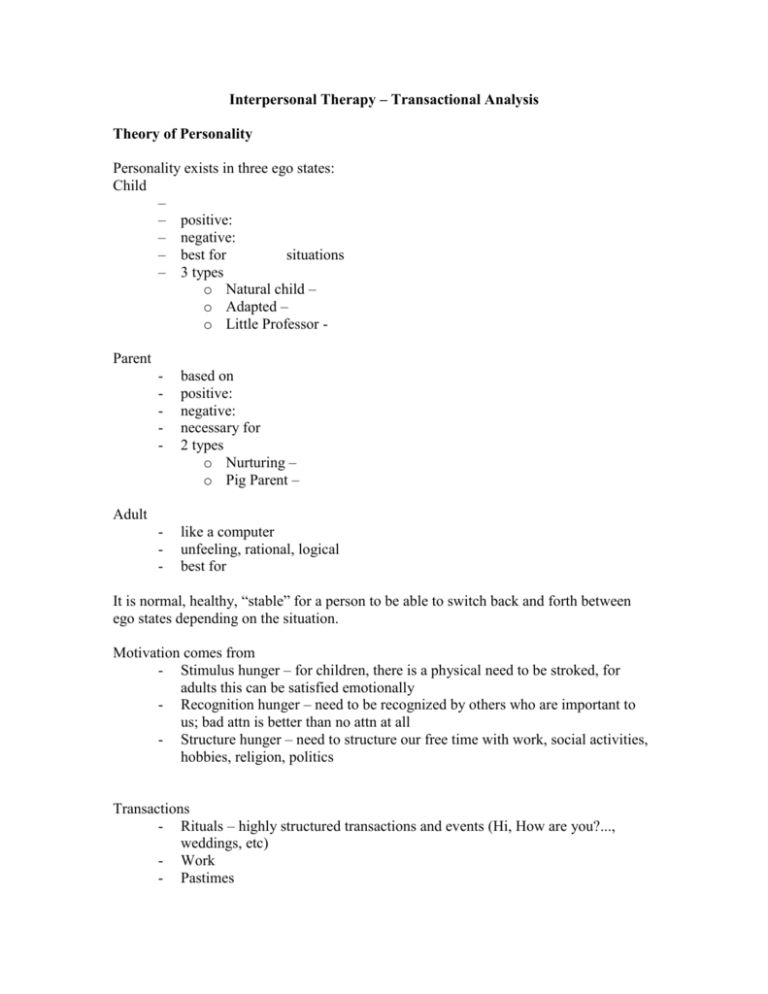
Interpersonal Therapy – Transactional Analysis Theory of Personality Personality exists in three ego states: Child – – positive: – negative: – best for situations – 3 types o Natural child – o Adapted – o Little Professor Parent - based on positive: negative: necessary for 2 types o Nurturing – o Pig Parent – - like a computer unfeeling, rational, logical best for Adult It is normal, healthy, “stable” for a person to be able to switch back and forth between ego states depending on the situation. Motivation comes from - Stimulus hunger – for children, there is a physical need to be stroked, for adults this can be satisfied emotionally - Recognition hunger – need to be recognized by others who are important to us; bad attn is better than no attn at all - Structure hunger – need to structure our free time with work, social activities, hobbies, religion, politics Transactions - Rituals – highly structured transactions and events (Hi, How are you?..., weddings, etc) - Work - Pastimes - Games People Play o most risky yet exciting o done for a payoff (feeling of guilt, depression, anger) Four life positions - I’m OK, You’re OK - I’m OK, You’re not OK - I’m not OK, You’re OK - I’m not OK, You’re not OK Life positions determine the life scripts you use and the types of payoff you look for. Theory of Psychopathology Structural Problems - confusion – - contamination – - exclusion – Problems with life position - I’m OK, You’re not o - I’m not OK, You’re OK o o o - I’m not OK, You’re not OK o o o o o Unhealthy Life Scripts - No-love o Depression o Feel unloved and unlovable o Parents were stingy with loving strokes - No-mind o Psychosis o Parents discouraged child from thinking (ex. Hallucinations of 8 year old) - No-joy o Parents did not allow them to enjoy their bodies o Become addicted to substances to numb pain or create false joy Therapeutic Process Structural Analysis is conducted to stabilize ego states. Transactional Analysis is conducted to examine life position and life scripts. Consciousness Raising - Therapy begins - Structural analysis - “Which part of you said that?” “Which ego state are you in now?” - The __________________ is usually in control during therapy - If a person needs to experience joy or if they need to accept strokes not received in childhood, the ________________ is asked to respond - The therapist can intentionally use a “______________________________” to elicit a Child response (guilt, depression, anger) and teach the client the appropriate Adult response instead - Identifying and interpreting patterns in the games and payoffs of the client - What ________________________________________________________ is the person’s life patterned after? - Role play: scenario is presented and multiple patients act out the various ego states of the person Choosing - As the Adult becomes more informed, the client can choose to behave more appropriately based on their choice of ego states, scripts, etc. Therapeutic Content - Anxiety – reaction of Child state to rejection by Parent. o Games are defenses against anxiety and must not be attacked too quickly - Self-esteem – being “OK” is crucial to health o What is the original life position?? - Responsibility – don’t blame yourself for choosing a faulty life script as a child, but hold yourself responsible for continuing to make that choice - Intimacy – interacting with another without games, structure, etc. o May be too overwhelming due to lack of structure o Therefore, sex is scheduled, ritualized - Communication o Complementary transactions – Adult-Adult, Child-Child, ParentParent; o Crossed transactions – conflict - Hostility - results from the belief that others are not OK - Control – comes from the Parent within - Adjustment versus Transcendence o Choosing to be healthy is consistent with living in society; doesn’t mean you have to believe all that society says about you - Impulse control o Impulsivity usually comes from the Child, must use the Adult or Parent to control impulses - Filling life with “strokeless” activities leads to loss of meaning. We need to fill our lives with work, pastimes, etc that give us strokes Therapeutic Relationship Games in the relationship provide the content for analysis. The relationship also provides the process for healing. Initially the client gives up control from own Parent to therapist’s Adult. Once they realize that their own Adult is as capable, they take back control as Adult. Therapist believes client is OK.

